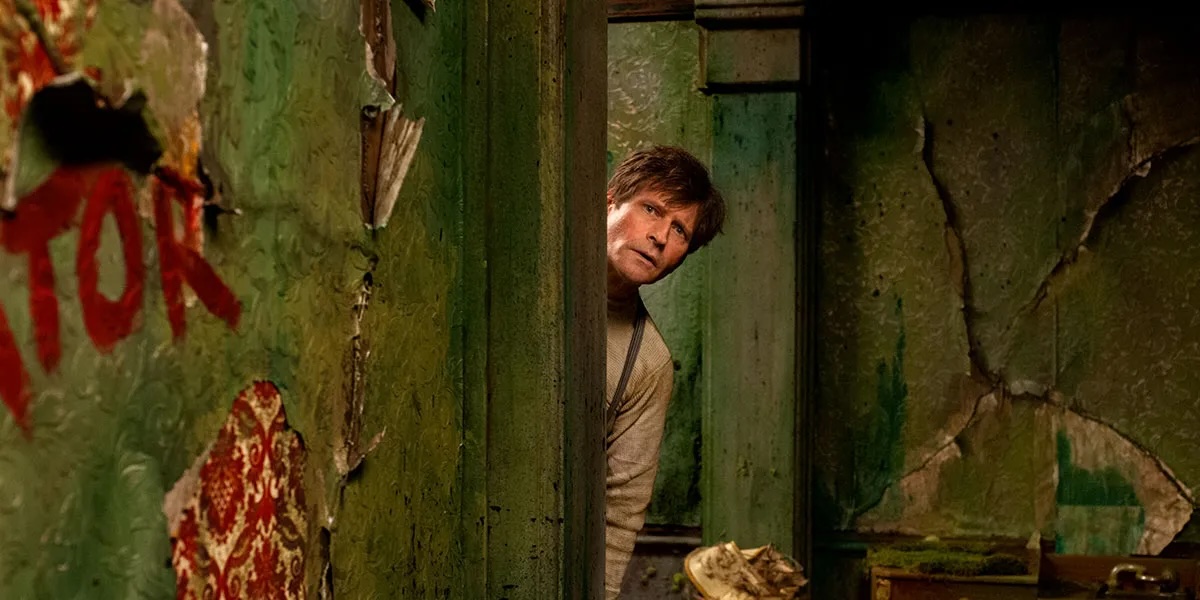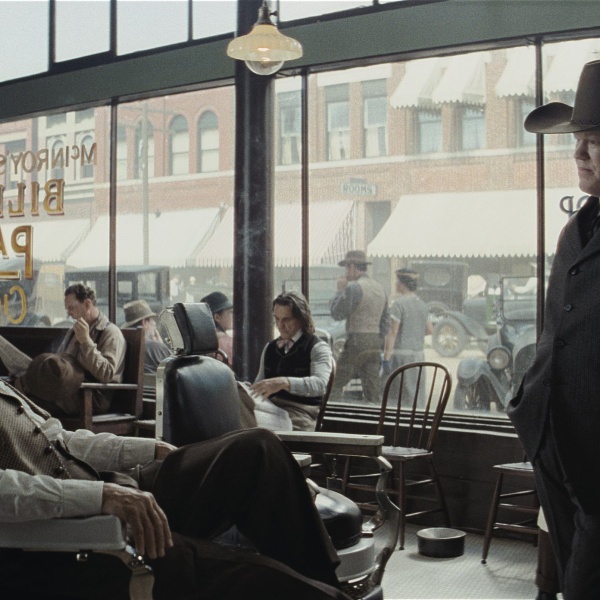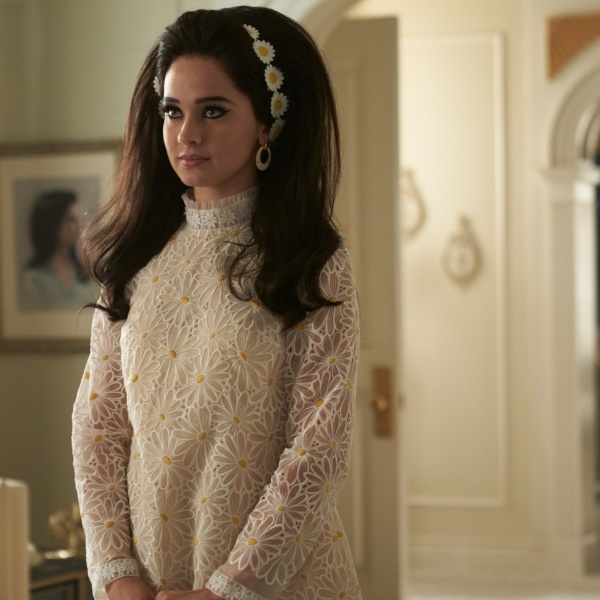“Every human being is a universe within themselves floating about in eternal darkness, aimless, lonely . . so lonely. Or maybe it’s just me”
We quickly learn these are the words of a traveling magician, the titular “Mr. K” (Crispin Glover), the first of several nods to the singular writer Franz Kafka. He performs his outdated magic in outdated clubs filled with diners who are too busy concentrating on their meals and conversation to pay attention to his wondrous craft. After packing up his battered bag of ticks, he leaves the dreary cafe, finding himself outside a decaying Victorian estate.
Writer-director Tallulah H. Schwab focuses on the tactility of the landscape around this estate. The verdant greens of the grass. The rustling of the leaves in the trees. You can even hear the ants as they crawl through the ruddy earth. The camera zooms closely on the insects, until their universe fills up the whole frame. Mr. K notices them briefly before heading off to what he thinks will be just a place to rest his head for the night.
Once inside, we see that this once grand estate is now nothing but faded elegance. The brusque manager remains expressionless as her eyes, one made of glass, suspiciously inspect the magician. She quickly leads him up a twisted staircase to his room. The walls are all dark green and faded wallpaper, badly peeling. One could imagine this is a sister establishment to run-down Hotel Earle from the Coen Bros.’ “Barton Fink.” When he finds people hiding inside his room, they wordlessly exit and he dismisses them with a bemused shrug. Weird noises emanate from the walls as he drifts into an uneasy sleep.
The next day dressed in his crisp, black suit, he packs up his sad baggage and heads out to leave. However, what once seemed like a simple hallway, is now a labyrinthine maze of endless corridors. Someone has scrawled in big red handwriting the word “Liberator” across the wallpaper. Dirty children scurry about, darting between doorways before stealing his luggage. A brass band, in the vein of Gogol Bordello, that seems to come directly out of the walls, endlessly march through the hallways, pushing him further and further into this chaotic world.
Eventually, he finds a pair of old ladies, dressed in matching old fashioned baby blue satin and off-white lace dresses. The women claim they are French, but curiously have British accents. They tell him they haven’t been outside in years because they have everything they need right here. He also runs into a flamboyant woman named Gaga, surrounded by her entourage. “I am an artist,” she says, “but on the whole a lot of my work has nothing to do with art.” Eventually, he stumbles his way into the kitchen, where he becomes a line worker. There he befriends a man named Anto, whose only ambition is to someday become a whisker of eggs. Without even trying, Mr. K quickly rises the ranks within the kitchen, losing his friend along the way.
Eventually, of course, everything falls apart as he discovers the hotel’s hidden secret and tries desperately to convince first the head chef, then the kitchen workers, and then all of the other trapped guests to work together to find an exit. As the insanity of the situation intensifies, Mr. K becomes more and more desperate, and more and more isolated from and suspicious of those around him. I won’t spoil the third act twist, but I will say between this and Guy Maddin’s “Rumours,” political satires with goopy practical effects are truly having a moment.
Where Maddin succeeds in skewering just about every kind of leader and privileged position on world politics, the global economy, and our shared journey on a dying planet, Schwab places its political lens on everyone in the system — those with privilege like the chef and the rich guests, and those without like the workers and children — but seems to place blame on everyone equally for their part in maintaining the broken system.
While Glover’s persona exists in an almost timeless realm as a figure for the weird everywhere, he is still an older white man at the center of a story that could be read as a metaphor for modern society, yet very few characters of color appear. His character goes from a reluctant, self-proclaimed nobody, to a hard worker in the flawed capitalistic system of the kitchen, to an attempted revolutionary, and finally back to a place of self interest. Is this character a hero? Is he a coward? Does he represent anything? Is it all just chaos?
Schwab leaves that up for the viewer to interpret for themselves. On one hand this is a film about embracing the small things that bring you joy, despite the abject chaos of the world that is crumbling around us. In that case, you could call it a joyous celebration. But, in embracing those small joys, the magician turns his back on his shared humanity with the other guests in the hotel. From that angle, this is a pessimistic film that sees no hope for our shared humanity. But perhaps, that is precisely the point. Both of these concepts exist at once and it is our duty as humans to come to terms with these contradictions.
Fans of Glover will find much to enjoy as his character parses through these very contradictions for himself. He’s always been a very expressive face actor, and his facial reactions to the never-ending barrage of bizarre circumstances are a real treat. Overall, despite its occasional missteps, “Mr. K” succeeds as both an homage to Kafka’s fascination with the absurdity of life, and especially with the socio-bureaucratic systems we humans have wrought upon ourselves, and as a sumptuous and surreal feast for the eyes. It poses many questions, leaving them for the audience to ponder for themselves after the screen fades to black.
Grade: B
“Mr. K” premiered at the Toronto International Film Festival.





